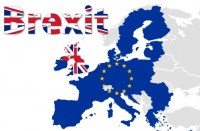Imran Khan’s PTI party are now the front-runners in a long awaited Pakistani general election which will take place on the 25th of July. In many ways Imran Khan is a paradox. He is opposition veteran but a novice in terms of government. He is currently 65 years of age, but is still something of the young man of Pakistani politics even though one of his opponents, Bilawal Bhutto Zardari is only 29. On the whole, Imran Khan has gone from a man that leading political dynasties used to mock to a man they are now accusing of conspiring with the military sstablishment to achieve a victory. In many ways, this itself represents Imran Khan coming full circle in terms of the de-facto and asymmetrical cursus honorum of Pakistani politics. In reality though, Imran Khan’s road to the centre of political attention in many ways mirrors Pakistan’s own domestic and geopolitical trials and tribulations of the last several decades.
Imran Khan entered politics in 1996 when he formed his party Pakistan Tehreek-e-Insaf (The Pakistan Movement of Justice). At the time, Imran Khan was already an international celebrity due to his career as a star cricketer, but in terms of politics he was seen widely as an outsider with some even calling PTI a “vanity project”.
Since 1996, Pakistan has faced a war with India in 1999 - the Kargil War, a military coup led by Pervez Musharraf that same year, the fomentation of new extremist terror groups since Musharraf joined George W. Bush’s so-called war on terror, a democratic transition in 2008 whose poll PTI boycotted and since then, the establishment of the China-Pakistan Economic Corridor (CPEC) which looks to revitalise the long term sustainable economic development of every region of Pakistan as the country forms the south Asian epicentre of the One Belt-One Road initiative.
While PTI came third at a national level in the 2013 general elections (albeit with in striking distance of the centre-left PPP), during Pakistan’s last major elections Imran Khan’s party won control of the Khyber Pakhtunkhwa province - Pakistan’s most politically unstable region. While many felt that PTI did not have the tools to govern Khyber Pakhtunkhwa effectively, the party has largely succeeded in bringing largely good government to a place that had previously been classed as “ungovernable”.
In the run-up to this year’s election, Imran Khan has drawn large crowds in all provinces of the country while in the all important Punjab province where 60% of Pakistanis live, he is now seriously threatening the rule of the incumbent PML-N. In particular, PTI has been able to highlight the dramatic disparity between the rich northern portion of Punjab and the economically neglected southern portions of the province, promising to rectify this intra-regional inequality if the party is victorious at a national level.
Likewise, many of Iman Khan’s personal predictions and policy proposals have in fact been vindicated at a national level. Iman Khan has always expressed scepticism regarding a lopsided relationship with the United States. Imran Khan has condemned Washington’s “war on terror” as an experience in futility that has poured fuel on many regional fires that Pakistanis have suffered from disproportionately.
Iman Khan has instead proposed regional cooperation mechanisms for fighting extremism while also working to integrate wayward Pakistanis back into the fold of mainstream politics and society. Rather than viewing extremism as a Manichaean or unilateral struggle, he has urged for dangerous terror groups to be separated from those living in economically depressed regions where a lack of life options forces the young and under-educated into the arms of dangerous groups. Such a strategy has tended to work in helping to normalise life in Khyber Pakhtunkhwa, thus setting an important precedent for the nation. For Imran Khan, economic and educational opportunities have been central to his proposals for ending the scourge of extremism.
As PTI have campaigned actively in all provinces of Pakistan more thoroughly than during any previous election, it is not difficult to see why PTI’s numbers have risen substantially in opinion polls in recent months. While the incumbent PML-N remains a formidable political machine, its scandal prone leaders have taken a toll on the party’s prestige.
Currently, the party’s putative leader Nawaz Sharif is behind bars after a court found him guilty of financial wrongdoings regarding the purchase of a large property in central London with funds that could not be accounted for. Nawaz’s sister Maryam is also behind bars for the same matter while current PML-N leader Shehbaz Sharif has blamed a conspiracy between the military and high court judges for holding back the electoral fortunes of the political juggernaut that is PML-N.
The fact of the matter is that the truth of such matters typically sits somewhere between the partisan accusations on all sides. Without a doubt, PML-N has a history of corruption while it is also clear that some of the more recent charges against party big-wigs do seem to be at least party motivated by an agenda beyond the scope of objective law enforcement.
That being said, both the aforementioned realities and the more absurd accusations to grow from these realities is not by any means exceptional in Pakistani politics. It is in fact ‘the rule that proves the rule’. In spite of this however, Imran Khan and PTI do remain the exceptions. As a hard working party that lacks the organised political machine of its main rivals, PTI has taken its anti-dynastic populist message directly to the people and the message appears to be making waves.
Taken in totality, PTI represents Pakistan’s version of a ‘third force’ in politics that offers a new path between the dogmas of the traditional centre-right and traditional centre-left. In this sense, PTI’s strong polling numbers are reminiscent of Turkey’s President Erdogan’s AK Party in the early 2000s which went from the political equivalent of “nothing” to capturing a majority of Turkish voters in successive elections thereby transforming Turkey’s political establishment on many levels. Imran Khan’s success is also somewhat reminiscent of the 2016 election victory of Rodrigo Duterte in The Philippines who also represented a new political force at a national level which takes a no-nonsense approach to popular concerns.
Even in the US where political outsider Donald Trump won an election, while leftist veteran Bernie Sanders remains more popular than ever, it is clear that in a variety of nations with differing political systems and economic standings in the world - political forces from outside of the traditional ruling elite are winning hearts, minds and elections.
Imran Khan has already won the hearts and minds of millions of Pakistanis with young people being a particularly strong part of his demographic. PTI has already de-facto succeeded in taking over from the PPP as Pakistan’s leading opposition party.
Therefore, on the 25th July Imran Khan will face his biggest challenge. It will not be an easy one even with the wind clearly behind his back, but if PTI do succeed, it will be nothing short of a political revolution in a country that has had its share of coups and flawed elections but one which desperately awaits peaceful political change.



